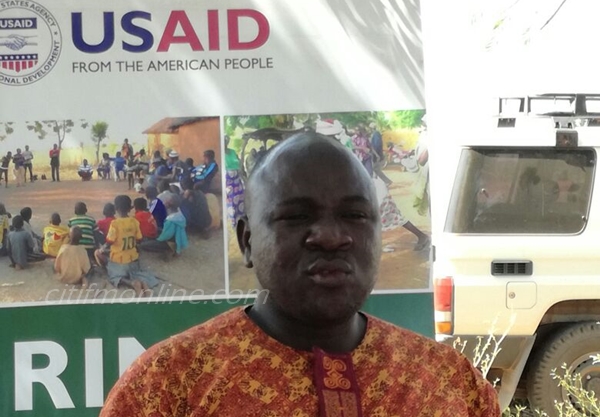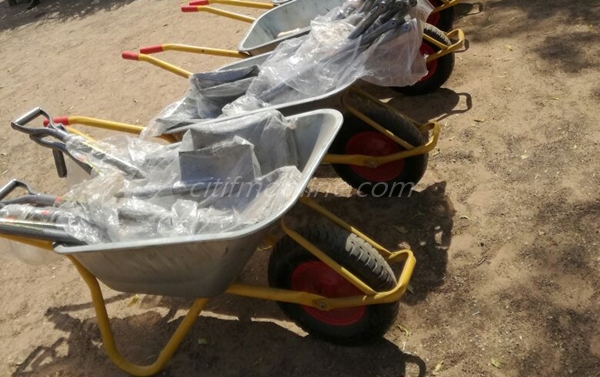The United States Agency for International Development (USAID) Resiliency in Northern Ghana (RING) has succeeded in combating open defecation in 56 communities of 17 districts in the Northern Region.
Through the Water, Sanitation and Health (WASH) project, 3,249 household latrines have been constructed in addition to 2,100 household and 482 institutional hand washing facilities installed in the beneficiary communities.
Celebrating the project’s success at the Konkomba Tuyini community in the Karaga district, the RING-WASH project Officer, Emmanuel Sungnumah Kogo commended four out of nine communities in the area for attaining open defecation free status.
He commended residents of Konkomba Tuyini, Songnayili, Namantula and Kpambini for adopting the project to improve their health status.
Mr. Kogo presented certificates, eight wheelbarrows and shovels to the beneficiary communities aimed at sustaining the project.
He observed that the project had significantly contributed to a reduction of water and sanitation related diseases in the targeted communities.
According to Mr. Kogo, sign posts would be erected at entry points to the beneficiary communities to deepen advocacy.
He urged residents of the communities to own the project by zealously safeguarding the facilities.
A resident of Konkomba Tuyini, Kwaku Abdulai thanked the USAID-RING for alleviating their plight.
Mr. Abdulai narrated that the agriculture component of the project has improved their livelihood.
RING is a 5-year integrated project under the Feed the Future Initiative funded by the USAID which was designed to contribute to the Government of Ghana’s efforts to sustainably reduce poverty and improve nutrition in the region.
The project’s goal is to improve the livelihoods and nutritional status of vulnerable households in targeted communities in the 17 districts of the Northern Region.
Consistent with USAID forward principles of direct support to host governments, RING is implemented through a collaborative approach with District Assemblies and the Northern Regional Coordinating Council including 6 regional departments.
The objective of RING is to decrease 25 percent in stunting among children under five; decrease 25 percent in wasting among children under five; decrease 20 percent in underweight among children under five; and decrease 20 percent in anaemia among children under five.
–
By: Abdul Karim Naatogmah/citifmonline.com/Ghana




